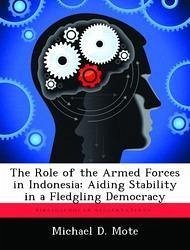Nicht lieferbar

Cultural, Religious, and Ideological Perspectives on the Just War Doctrine and the Customary Laws of Armed Conflict: Western and Islam
Versandkostenfrei!
Nicht lieferbar
This paper informs "western" military forces about the Islamic environment in the Middle East. It articulates similarities and differences between the Western and the Islamic perspectives of war and peace. It defines to what degree Shiite leaders reflect these religious perspectives and then makes recommendations for strategic decision makers regarding the same. Probing into the intent behind the Western and Shiite war and peace traditions, presents more similarities than differences. Neither is universally held yet both traditions agree on a strong presumption against violence. Points of dive...
This paper informs "western" military forces about the Islamic environment in the Middle East. It articulates similarities and differences between the Western and the Islamic perspectives of war and peace. It defines to what degree Shiite leaders reflect these religious perspectives and then makes recommendations for strategic decision makers regarding the same. Probing into the intent behind the Western and Shiite war and peace traditions, presents more similarities than differences. Neither is universally held yet both traditions agree on a strong presumption against violence. Points of divergence appear regarding the justification of war for solely religious purposes and the treatment of noncombatants. Evaluation of Shiite cleric statements and written works demonstrate a wide variance in advocacy for the traditional Islamic rules of war. The majority of statements made by the clerics pertained to religious vice state matters, however, all the clerics referred to western military forces as occupiers. The variances and agreement points among the clerics lead to three recommendation for US leaders. First, each cleric wields influence and act as instruments of power. Second, to understand the cultural environment, these war and peace traditions and regional religious views should be taught to Department of Defense members. Third, to promote success in the Middle East, strategic communication should change to express a respect for both Islamic laws and practices.










